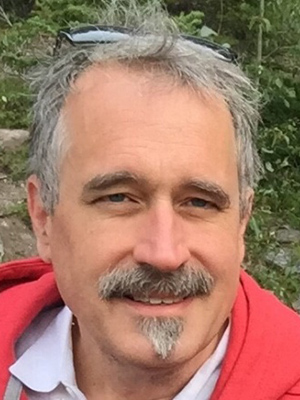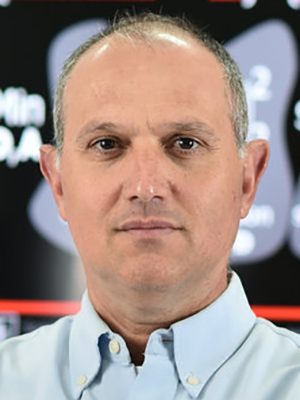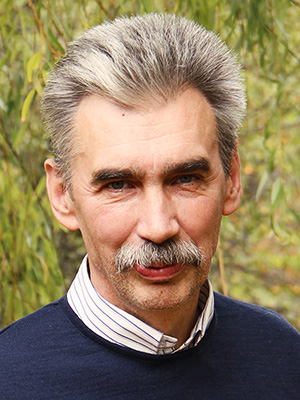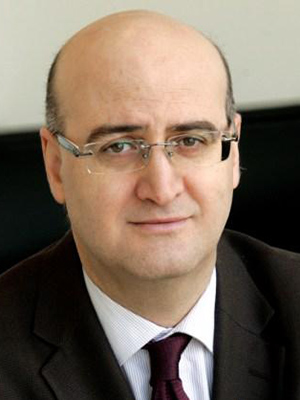Plenary Speakers
Plenary Talk 1 (9:00-10:00, 26.11)
Alan Bovik
Laboratory for Image and Video Engineering (LIVE), The University of Texas at Austin
Consciousness of Stream: Perceptually Optimizing Global Video

The large-scale streaming of videos on demand, as exemplified by Netflix, Amazon, and Hulu, is a remarkable engineering achievement embodying major advances in video compression and communications, digital networks, high-speed computation, and displays. Yet significant challenges remain in providing high quality streaming content to consumers. I will discuss two important and unsolved aspects of the streaming video workflow: First, source inspection, where the intrinsic quality and artifacts of source videos are detected and assessed. Content providers ingest massive volumes of legacy contents suffering from very diverse artifacts. I will explain new ways to automatically detect and assess these visual defects in sourced content, using both neurostatistical video models, as well as contemporary learning methods. Second, the client-side issue of optimizing displayed video quality at the consumer’s set-top box / display, where balancing tradeoffs between compression and rebuffering is critical. Excessive compression is undesirable, but can be accurately predicted, while the perceptual effects of video stalls/rebuffering are less well studied. I will describe models that learn to map both stall events and measured video quality to subjective Quality of Experience (QoE) in combined compression-rebuffering scenarios. The ultimate aim are automatic rate control protocols that minimize rebuffering events while maintaining acceptable compressed perceptual picture quality.
Al Bovik is the Cockrell Family Regents Endowed Chair Professor at The University of Texas at Austin. He has received many major international awards, including the 2017 Edwin H. Land Medal from the Optical Society of America, the 2015 Primetime Emmy Award for Outstanding Achievement in Engineering Development from the Academy of Television Arts and Sciences, and the ‘Society and ‘Sustained Impact” Awards of the IEEE Signal Processing Society. His is a Fellow of the IEEE, the Optical Society of America, and SPIE. His books include The Handbook of Image and Video Processing, Modern Image Quality Assessment, and The Essential Guides to Image and Video Processing. Al co-founded and was the longest-serving Editor-in-Chief of the IEEE Transactions on Image Processing and created the IEEE International Conference on Image Processing in Austin, Texas, in November, 1994
Plenary Talk 2 (9:00-10:00, 27.11)
Michael Elad
Israel Institute of Technology
Sparse Modeling in Image Processing and Deep Learning

Sparse approximation is a well-established theory, with a profound impact on the fields of signal and image processing. In this talk we start by presenting this model, and then turn to describe two special cases of it – the convolutional sparse coding (CSC) and its multi-layered version (ML-CSC). Amazingly, as we will carefully show, ML-CSC provides a solid theoretical foundation to … deep-learning. This talk is meant for newcomers to these fields - no prior knowledge on sparse approximation is assumed.
Michael Elad holds a B.Sc. (1986), M.Sc. (1988) and D.Sc. (1997) in Electrical-Engineering from the Technion, Israel Institute of Technology. His M.Sc. under the guidance of Prof. David Malah focused on video compression algorithms, and his D.Sc. centered around super-resolution algorithms for image sequences, guided by Prof. Arie Feuer. After several years (1997-2001) in industrial research in Hewlett-Packard Lab Israel and in Jigami, Michael took a research-associate position at Stanford University during the years 2001-2003, working closely with Prof. Gene Golub (CS-Stanford), Prof. Peyman Milanfar (EE-UCSC), and Prof. David L. Donoho (Statistics-Stanford). Since 2003 Michael Elad holds a tenure-track faculty position in the Computer-Science department at the Technion. He was tenured and promoted to Associate Professorship in 2007, and promoted to full-professorship in 2010.
Plenary Talk 3 (13:30-14:30, 27.11)
Vladimir Lukin
National Aerospace University of Ukraine
Processing of hyperspectral images with prediction of performance parameters

Hyperspectral imaging produces data in hundreds of spectral sub-bands. Due to this, it widens opportunities to extract useful information from Hyperspectral images but, at the same time, leads to problems in processing and managing data that are of large size. Additional problems that arise in practice are noise and, possibly, other factors that degrade image quality where noise is signal-dependent and has statistics that varies from one sub-band image to another. A positive feature is that signal components in sub-band images are highly correlated. Important stages in processing of Hyperspectral images are denoising and lossy compression. Our report focuses on aspects of noise removal and parameter setting for encoders based on discrete cosine transform (DCT). We show that efficiency of denoising can be predicted in advance and this allows skipping image filtering for many sub-bands of Hyperspectral data cube if initial PSNR is high and/or an image is highly textural. This saves processing time and resources which is important, especially for data processing on-board. Similarly, some important parameters of lossy compression as compression ratio or MSE of introduced distortions can be predicted in advance for a given quantization step (QS). This allows setting a proper QS for attaining an appropriate trade-off. Vector (3D) processing of Hyperspectral data is shown to be expedient since it allows taking inter-band correlation into account and improving performance of both filters and coders.
Prof. Vladimir Lukin got Candidate of Technical Science (Ph.D.) degree in Radioelectronic Systems from Kharkov Aviation Institute (now National Aerospace University), Kharkov, USSR (1988); Doctor of Technical Science degree in Remote Aerospace Research from National Aerospace University, Kharkov, Ukraine (2002). He has been working with Dept of Transmitters, Receivers and Signal Processing since 1983 where he got Senior Researcher Diploma in 1991 and Professor Diploma in 2007. Since 2016 he is Head of Dept of Information and Communication Technologies. V. Lukin got the prize of “The best researcher of Kharkov” in 2016. His research interests include digital signal/image processing, remote sensing, robust estimation. He published 4 books and over 400 papers.
Plenary Talk 4 (9:00-10:00, 27.11)
Moncef Gabbouj
Signal Processing Laboratory, Tampere University of Technology
Novel Machine Learning Solutions for Pertinent Applications

In this talk, we present a hierarchical layered approach that exploits all types of sensor and non-sensor signals and design suitable representation, processing and analysis algorithms in order to apply machine learning, including deep and shallow learning, leading to specific applications, which include healthcare and wellbeing, surveillance, and media and entertainment to mention a few. We focus on novel neural network topologies to enable machine learning solutions in several important applications.
Dr. MONCEF GABBOUJ received his BS degree in electrical engineering in 1985 from Oklahoma State University, Stillwater, and his MS and PhD degrees in electrical engineering from Purdue University, West Lafayette, Indiana, in 1986 and 1989, respectively. Dr. Gabbouj is a Professor of Signal Processing at the Department of Signal Processing, Tampere University of Technology, Tampere, Finland. He was Academy of Finland Professor during 2011-2015. He was a visiting professor at the Departments of Electronic and Computer Engineering, Hong Kong University of Science and Technology, Hong Kong. Dr. Gabbouj was on sabbatical at the Viterbi School of Engineering, University of Southern California, Los Angeles, California, during spring 2012, and before that a visiting professor at the School of Electrical and Computer Engineering of Purdue University, West Lafayette, Indiana during fall 2011. He was also a visiting professor at the American University of Sharjah, UAE in 2007-2008. He was Head of the Department during 2002-2007. Dr. Gabbouj was Senior Research Fellow of the Academy of Finland during 2007-2008 and 1997-1998. He is the co-founder and past CEO of SuviSoft Oy Ltd. From 1995 to 1998 he was a Professor with the Department of Information Technology of Pori School of Technology and Economics. From 1994 to 1995 he was an Associate Professor with the Laboratory of Signal Processing of Tampere University of Technology, Tampere, Finland. From 1990 to 1993 he was a senior research scientist with the Research Institute for Information Technology, Tampere, Finland. Dr. Gabbouj is currently the TUT-Site Director of the NSF IUCRC funded Center for Visual and Decision Informatics and member of the Science Council of Tampere University of Technology. His research interests include Big Data analytics, multimedia content-based analysis, indexing and retrieval, artificial intelligence, machine learning, pattern recognition, nonlinear signal and image processing and analysis, voice conversion, and video processing and coding.